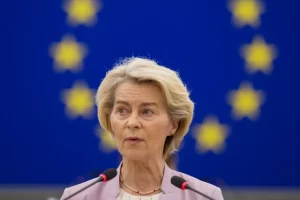UN General Assembly calls for US to end Cuba embargo for 30th consecutive year

United Nations: The United Nations General Assembly Thursday adopted, by a huge majority, a resolution demanding the end of the United States’ economic blockade on Cuba — for the 30th year in a row.
The vote in the 193-member General Assembly was 185 countries in favour, to two against (the United States and Israel), with two abstaining (Brazil and Ukraine).
While the Assembly’s vote carries political weight in terms of international diplomacy, only the US Congress can lift the economic, commercial, and financial embargo in place for over six decades.
Cuban Foreign Minister Bruno Rodriguez said before the vote that since 2019, the U.S. government “has escalated the siege around our country, taking it to an even crueler and more humane dimension, with the purpose of deliberately inflicting the biggest possible damage on Cuban families.”
During the first 14 months of the Biden administration, the damage to the Cuban economy was estimated at $6.35 billion, equivalent to more than $15 million a day, Rodriguez said.
The Cuban foreign minister said the Biden administration is continuing former President Donald Trump’s “maximum pressure” policy. He said that despite some positive but limited adjustments in recent months on U.S. flights to Cuba, remittances and consular proceedings, these in no way “modify American economic, commercial and financial measures.”
“The blockade, which has been tightened to the extreme, continues to be the central element that defines the U.S.-Cuba policy,” Rodriguez said.
U.S. political counselor John Kelley told the assembly after the vote that the United States remains committed to the Cuban people’s pursuit of freedom and dignity, is focused on their political and economic well-being, and centers its efforts “on democracy and human rights and fundamental freedoms.”
He recalled that the Cuban government pursued a crackdown on demonstrators in response to July 2021 protests by tens of thousands of Cubans across the island demanding freedom.
He said Cuba’s government also “has used harsh prison sentences, even against minors, intimidation, tactics, arrests, Internet disruptions, government-sponsored mobs, and horrendous prison conditions to try to prevent Cubans from exercising their human rights.”
Cuba’s deputy U.N. ambassador, Yuri Gala, responded: “If the United States government really did care for the well-being, human rights and self-determination of Cuban people, it could lift the embargo.”
The United States advocates for individual freedoms in Cuba, Gala said, “yet they have not reversed the restrictions that are having a direct impact on Cuban entrepreneurs in areas such as software development, hospitality and other areas.”
Rodriguez earlier told the assembly, “We do not blame the blockade for all the difficulties our country faces today.”
“But those who deny its very serious impacts or fail to recognize that it is the main cause of the deprivations, scarcities and hardships suffered by Cuban families would be failing to tell the truth,” he said.
Rodriguez accused the U.S. of using its powerful media and digital technology platforms “in a virulent disinformation and disparagement campaign against Cuba.” He said the U.S. is resorting to “the most diverse methods of non-conventional war, using our children, youths and artists as the targets of this political and media bombardment.”





